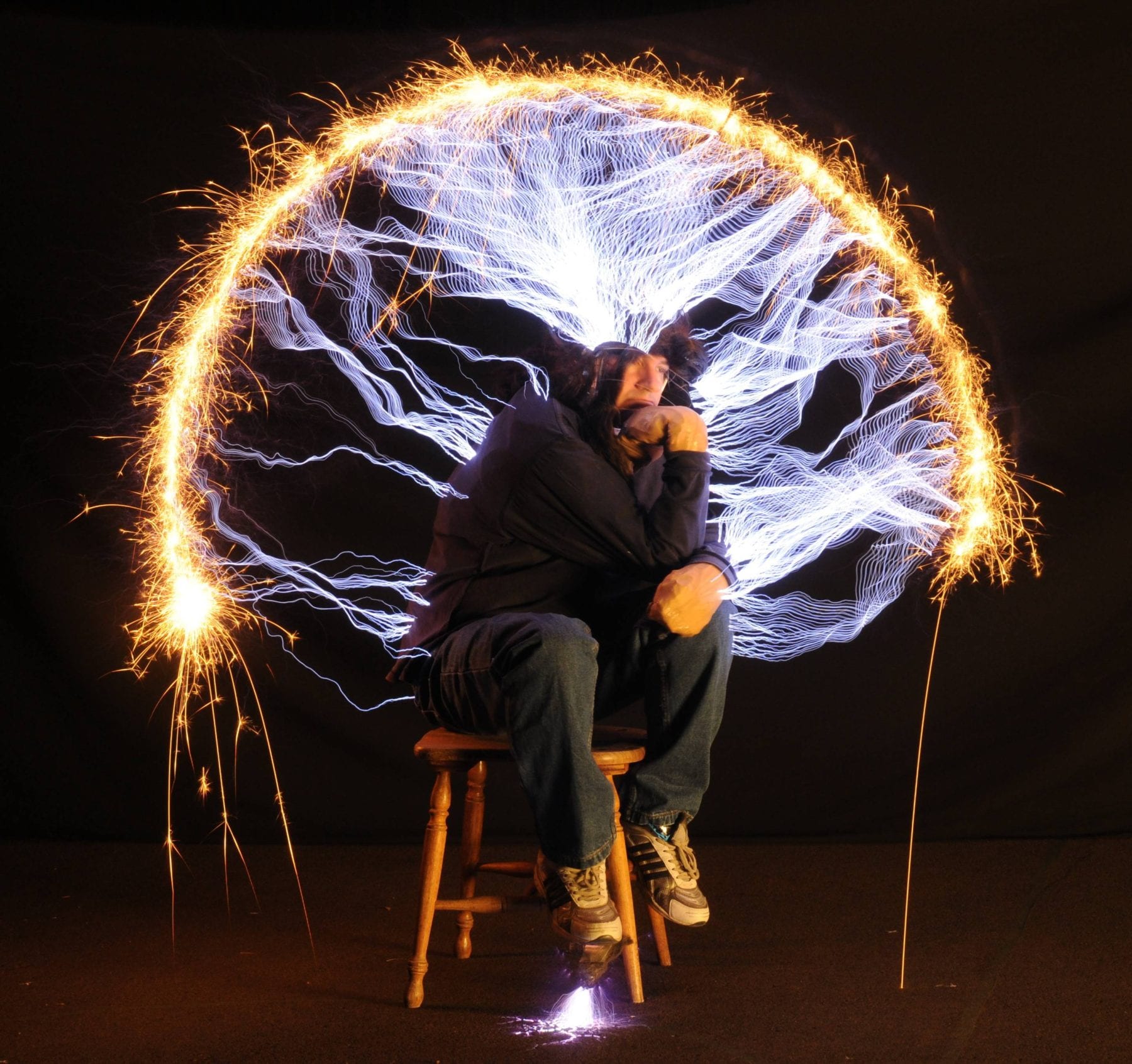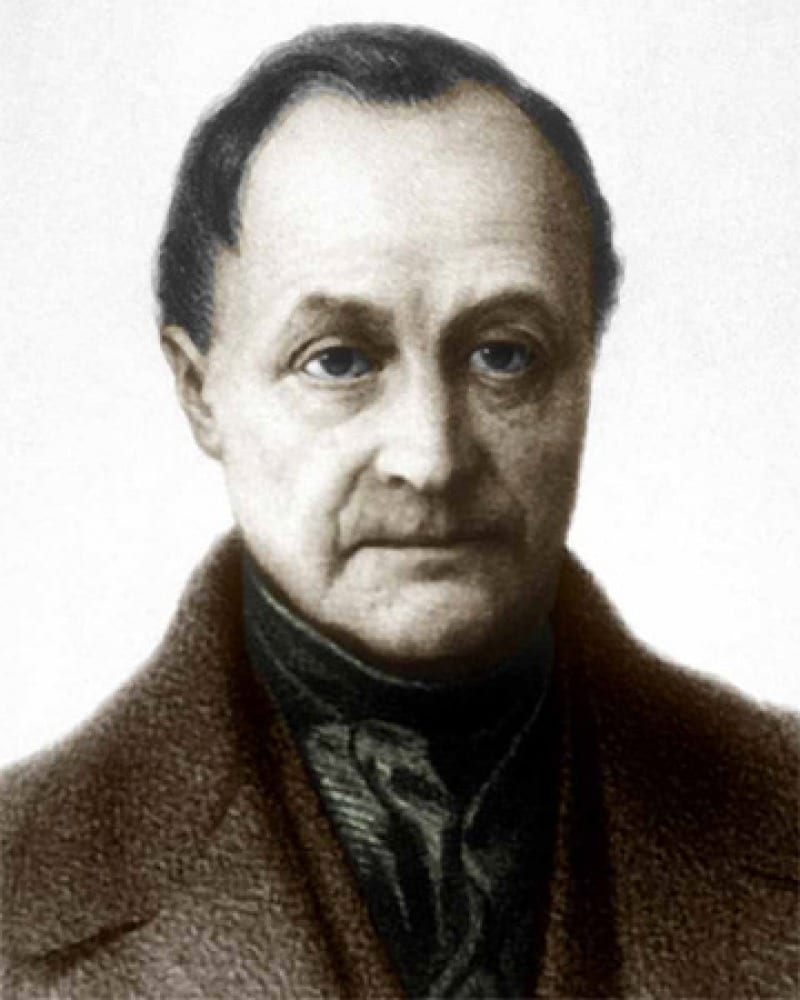The typical educated person in the same society would explain this as Auguste Comte did: Man is moving past the stage of fascination with eternal mystery because the success of the scientific method in developing wonder-inspiring technology– and that shows that there are no mysteries in this world which cannot be unveiled eventually by testing. Though we wonder at the size of the universe, we know it’s workings will be one day explained just like our wondrous skyscrapers. Man used to think that lightning was thrown around by the gods, but now we know it is just electrons doing their thing. We can throw it around with tesla coils just as easily. Religious practice according to Comte is perpetuated merely by a experience with mystery – not with an actual diety.
developing wonder-inspiring technology– and that shows that there are no mysteries in this world which cannot be unveiled eventually by testing. Though we wonder at the size of the universe, we know it’s workings will be one day explained just like our wondrous skyscrapers. Man used to think that lightning was thrown around by the gods, but now we know it is just electrons doing their thing. We can throw it around with tesla coils just as easily. Religious practice according to Comte is perpetuated merely by a experience with mystery – not with an actual diety.
Rudolf Otto famously defined the numinous in The Idea of the Holy. He claims that this experience of mystery and awesomeness is legitimate–all religions are touching on the same –the divine and sacred–a fear that that should inspire a feeling of complete nothingness for the created (he calls it the mysterium tremendum et fascinans).  In the case of Buddhism there is an acknowledgement of one’s nothingness in the course of all things–as well as Hinduism. Jews, Christians and Muslims all recognize the omnipotence and an incomprehensible side of God which is referred to as his ‘mind’ ordaining all things. The religious cults and pagan religions of ancient Greece and Rome were fixed on placating the Gods and, and making sure you get the right one when you pray. The Aztecs sacrificed human beings to placate theirs–a god they thought they understood but surely still remained in part a mystery to them.
In the case of Buddhism there is an acknowledgement of one’s nothingness in the course of all things–as well as Hinduism. Jews, Christians and Muslims all recognize the omnipotence and an incomprehensible side of God which is referred to as his ‘mind’ ordaining all things. The religious cults and pagan religions of ancient Greece and Rome were fixed on placating the Gods and, and making sure you get the right one when you pray. The Aztecs sacrificed human beings to placate theirs–a god they thought they understood but surely still remained in part a mystery to them.
I do not dare to attempt to explicate the mystery that both Otto and Comte recognize (I would not only be as arrogant as a dogmatic Dawkins, but I would also claiming divine insight) –describing the unknown is kind of like describing a beer you’ve never had…
But what I do want to state here is that, since this is integral to religious experience, it would seem only natural and expected that where this experience of (God or not) is lacking, there can be little religious sentiment, and the more of it, the more sentiment. In the case that God exists, and this experience with mystery is an experience with God (this is what we have called the sacred) because it is precisely that which escapes our understanding that moves our heart to feel so insignificant and dependent. If, say, our personal experience at a place of worship were to lack any semblance of recognizing (and feeling) this incomprehensible and ineffable aspect of God or a god — you might call the experience more of an intellectual exercise than a  religious one.
religious one.
Why can I say that the place of worship can lack semblance of the incomprehensible, as if that is our fault? If the divine really is there, then why try to create a sense of the divine?….isn’t that ‘creating’ religion, the very thing which Comte accuses mankind of doing? This is another question which can be spoken about in a subsequent post, but my only point here is that it the divine, whether it is real or not, is invisible. Invisible things are not experiencable directly and so if one were to have faith that such invisible things existing in a certain way, it would make sense that he should try to acknowledge that mystery of God to God himself by setting this certain space and worship apart from the rest of his daily life (not using profane things in a sacred place) and second that he would want to communicate the ineffable to his fellow man as well. There is a certain paradox in saying — “communicate the ineffable”… but without representing it in some way to others, religion will continue to slowly fade (or quickly).
Some will look on and say “Why do you jump around the fire three times? Why do you beat your breast three times speaking in Latin towards a wall? Why do you burn incense or sit with your legs crossed, thumbs and pinkies together? That is all superstition.
Can it be any other way if the God of any of these religions really does hold us and the world in being at every moment? If God is real, maybe we should be jumping around a fire for the rest of our lives to get the point across to ourselves how small we are. If the rug of experience with the ineffable is pulled out from under any religion, it has lost an essential and accurate expression of the sacred and you can expect its decline not too far down the line. Its going on right now (1,2,3), while the religious communities that retain the sacred are surviving.

Put the rug back, ironically, for the common uneducated man. It was the custodians of the temple (who knew Latin or whatever the mystery) that were in more danger of the pride, presumption and a more inaccurate representation of God in the first place.

